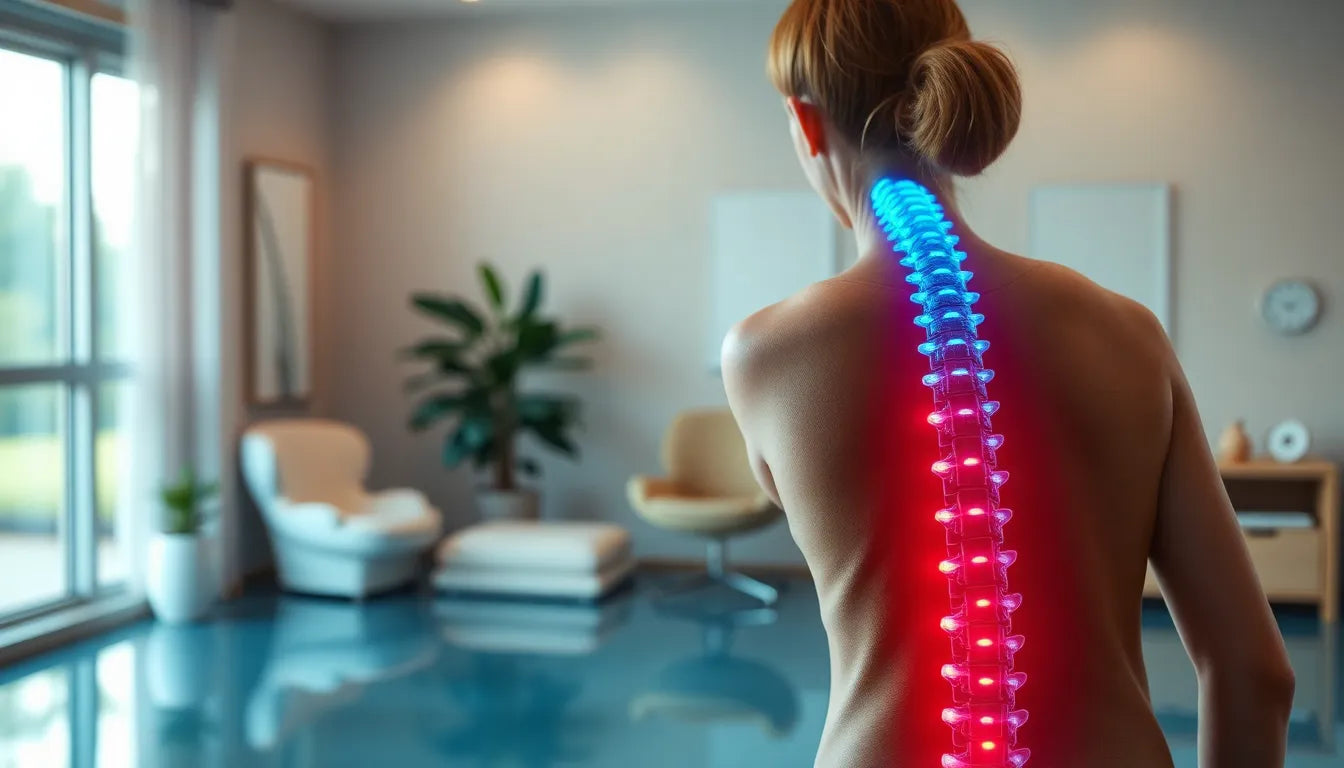Living with a herniated disc can be a daily struggle, as the condition often brings persistent pain and discomfort. A herniated disc occurs when the soft material inside a spinal disc protrudes through its tougher exterior layer. This can lead to irritation of nearby nerves, resulting in pain, numbness, or weakness that may radiate to other parts of the body. For those affected, even simple activities such as sitting can become a challenge, making the choice of a chair crucial for comfort and pain relief.
the impact of herniated discs on daily life
The discomfort caused by a herniated disc can significantly affect one's quality of life. Everyday tasks, from working at a desk to enjoying a meal, can become uncomfortable or even painful. This is why finding the right chair is not just about comfort—it's about managing pain and enhancing daily life. An inappropriate chair can exacerbate symptoms, while the right one can provide much-needed relief and support, allowing sufferers to engage more fully in their daily activities.
the role of ergonomic chairs in pain management
Ergonomic chairs are specifically designed to support the body and promote a healthy posture, which is particularly beneficial for individuals with herniated discs. These chairs often include features such as lumbar support, adjustability, and a design that encourages proper spinal alignment. Lumbar support is crucial as it helps maintain the natural curve of the spine, reducing strain on the lower back. Adjustability allows users to customize the chair to their specific needs, ensuring that it provides the right level of support and comfort.
guiding you to the perfect chair
The purpose of this post is to guide you through the process of selecting the perfect chair to alleviate the discomfort associated with a herniated disc. We will explore various options, focusing on chairs that offer the best ergonomic features to support your spine and reduce pain. By understanding what to look for in a chair, you can make an informed decision that will help improve your comfort and quality of life. Whether you're working from home, at the office, or simply relaxing, having the right chair can make all the difference in managing your herniated disc pain effectively.
product recommendations and reviews
When it comes to selecting the best chair for herniated disc relief, certain models stand out for their exceptional ergonomic features. One of the top contenders is the Anthros Chair, celebrated for its upright support and ability to maintain spinal alignment. This chair is designed with the specific needs of herniated disc sufferers in mind, offering robust lumbar support that helps alleviate lower back strain.
Another excellent choice is the FlexiSpot BS8 Pro, which boasts comprehensive adjustability. This chair allows users to fine-tune the height, armrests, seat pan, and recline to their exact preferences, ensuring optimal comfort and support. Its flexibility makes it an ideal option for those who require frequent adjustments throughout the day.
The Herman Miller Cosm is also highly recommended, particularly for its emphasis on ergonomic design and comfort. Known for its innovative suspension backrest, the Cosm provides continuous support, adapting to your movements and promoting a natural sitting posture.
To help you make an informed decision, here’s a comparison table highlighting key features:
| Chair Model | Adjustability | Lumbar Support | Price Range |
|---|---|---|---|
| Anthros Chair | Moderate | Excellent | High |
| FlexiSpot BS8 Pro | High | Good | Medium |
| Herman Miller Cosm | Moderate | Excellent | High |
clinical and ergonomic guidance
Understanding the clinical aspects of herniated disc pain is crucial in selecting the right chair. An upright sitting posture is vital as it maximizes disc space and minimizes pressure on the spine. Chairs that offer proper lumbar support can significantly enhance this posture, reducing pain and discomfort.
When choosing a chair, look for features such as adjustable height, armrests, seat pan, and recline. These elements allow you to customize the chair to your body’s needs, promoting a healthier sitting position. Additionally, opting for a chair with a firm seat rather than a soft one can provide better support, helping maintain an upright posture.
For individuals with herniations in the neck or upper back, selecting a chair with a tall, adjustable backrest is advisable. This feature provides additional support and helps alleviate strain on the upper spine.
medical and comfort-focused content
The medical rationale behind specific chair features is rooted in their ability to support spinal health. Lumbar support is essential as it helps maintain the spine's natural curve, reducing lower back stress. Adjustable chairs allow users to modify their seating position, which is crucial for accommodating different body types and preferences.
Additional tips for enhancing comfort include using a chair in conjunction with a standing desk. This setup allows you to alternate between sitting and standing, preventing prolonged sitting that could exacerbate pain. Mesh chairs are also recommended for their breathability and comfort, keeping you cool and comfortable throughout the day.
By investing in a chair that offers these features, you can significantly improve your comfort and quality of life while managing herniated disc pain. Remember, the right chair is not just an investment in comfort but a crucial component of your overall health strategy.
commercial and brand positioning
In the competitive world of ergonomic furniture, brands like Anthros and FlexiSpot have carved a niche by focusing on solutions specifically designed for herniated disc pain. The Anthros Chair, for instance, positions itself as a leader in spinal alignment and support, addressing the unique needs of those with disc-related issues. Its emphasis on maintaining an upright posture and providing excellent lumbar support makes it a top choice for sufferers seeking relief from persistent back pain.
Similarly, FlexiSpot's BS8 Pro stands out with its comprehensive adjustability, allowing users to tailor their sitting experience to their individual needs. This adaptability is crucial for those experiencing herniated disc discomfort, as it supports various postures and reduces strain on the spine. Both brands highlight their commitment to improving quality of life through ergonomic innovation, making them trusted names in the field of back health.
buyer's guide: features and practical advice
When searching for the perfect chair to alleviate herniated disc pain, certain features are non-negotiable. Lumbar support is paramount, as it helps maintain the spine's natural curve, reducing pressure on the lower back. Chairs with adjustable components—such as height, armrests, and seat depth—offer customization options that can accommodate different body types and preferences, promoting a healthier sitting posture.
Firmness is another critical factor. While softer seats may seem appealing, they often lack the support necessary for maintaining an upright posture, which is essential for those with herniated discs. Opting for a chair with a firm seat can enhance stability and support, helping to alleviate pain. Additionally, an ergonomic design that encourages movement and flexibility can further aid in reducing discomfort.
Visual aids, such as images and infographics, can be beneficial in understanding these features. They provide a clear representation of how each component works in harmony to support spinal health. By focusing on these key elements, individuals can make informed decisions that align with their specific needs, leading to improved comfort and pain management.
frequently asked questions
What is the best sitting position for a herniated disc?
An upright position with proper lumbar support is recommended to maximize disc space and minimize pain. This posture helps maintain the natural curvature of the spine, reducing pressure on the affected area.
Can an ergonomic chair really help with herniated disc pain?
Yes, ergonomic chairs are designed to support posture correction and back health, which are essential for those with herniated discs. They provide the necessary support to alleviate discomfort and promote healing.
Are firm seats better for herniated disc sufferers?
Generally, firm seats provide better support and help maintain an upright posture, which can alleviate pain. A firm seat prevents excessive sinking, which can strain the lower back.
Should I consider a standing desk if I have a herniated disc?
Yes, alternating between sitting and standing can help avoid prolonged sitting, which may exacerbate pain. A standing desk allows for movement and flexibility, reducing the pressure on the spine.
conclusion
Choosing the right chair is a crucial step in managing herniated disc pain effectively. By focusing on key features such as lumbar support, adjustability, and firmness, individuals can find a chair that meets their specific needs. It's important to consider personal preferences and consult with healthcare professionals when making a decision. Investing in the right ergonomic chair can significantly enhance comfort and improve quality of life for those suffering from herniated disc discomfort.
```html
Sources
- Anthros. "The Office Chair for Herniated Disc."
- Autonomous. "7 Best Office Chairs for Herniated Discs."
- Barricaid. "Best Position to Sit with a Herniated Disc."
- FlexiSpot. "Best Office Chair Herniated Disc."
- Wayfair. "Ergonomic Chair For Lumbar Herniated Discs."
- BTOD. "9 Top Rated Office Chairs."
- VELA EU. "Optimal chair for herniated disc disability."


















